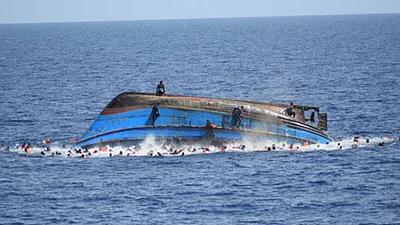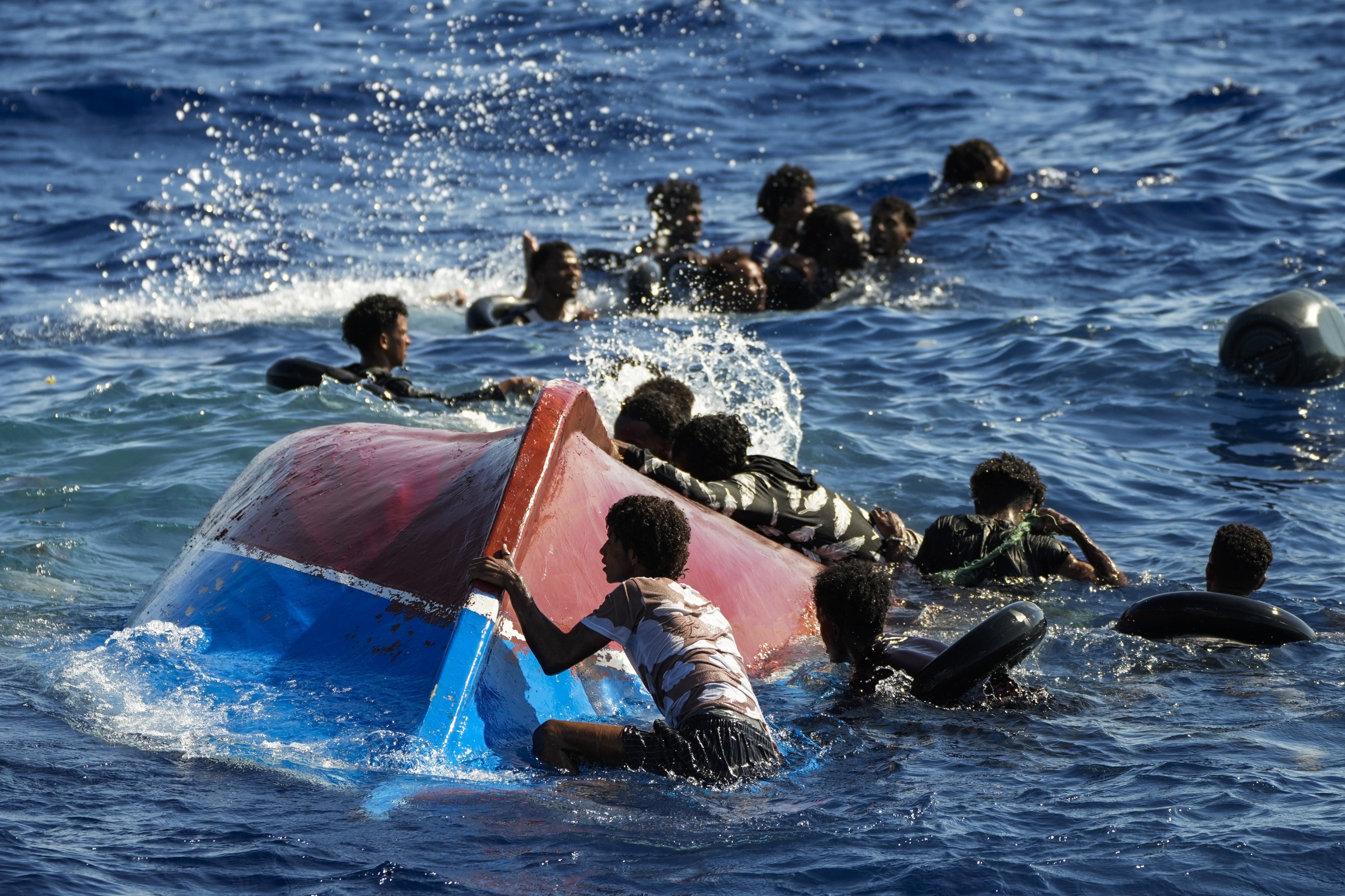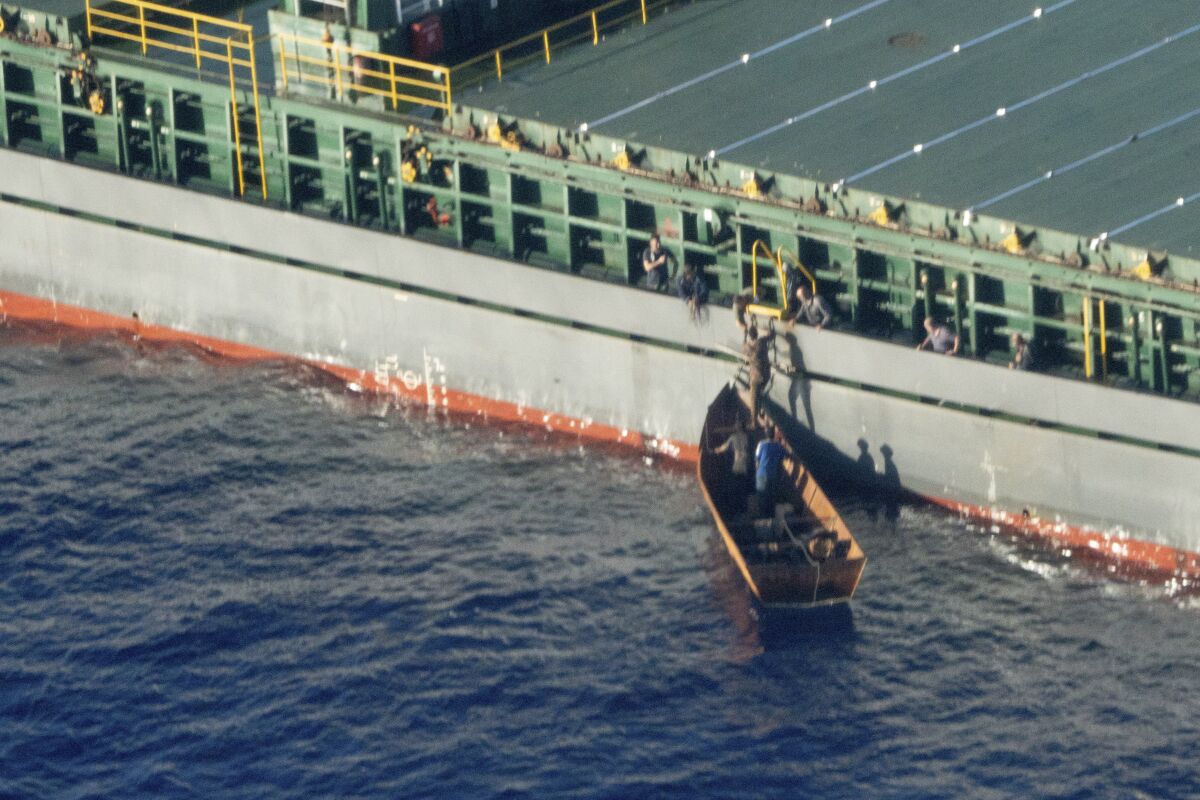Tragedy Strikes Again: 41 Lives Lost in New Mediterranean Migrant Shipwreck

Tragedy Strikes Again: 41 Lives Lost in New Mediterranean Migrant Shipwreck
In yet another heart-wrenching incident, a migrant ship carrying desperate individuals seeking a better life faced a tragic fate in the Mediterranean Sea. The vessel, overloaded with people escaping conflict, poverty, and persecution, met a devastating end as it capsized, claiming the lives of 41 people. This tragic event sheds light on the ongoing humanitarian crisis and the perilous journey migrants undertake in search of safety and opportunity.
The ill-fated ship departed from an undisclosed location on the northern African coast, its passengers hoping to reach the shores of Europe in pursuit of a brighter future. Many aboard were families, men, women, and children, all yearning for a chance at a new life. As the vessel set out across the open waters, its fragile structure struggled to withstand the unpredictable sea conditions. Reports indicate that the ship was overcrowded, a common issue faced by migrants in their quest for refuge.
The Mediterranean Sea, despite its stunning beauty, has become a graveyard for countless migrants over the years. The waters that connect three continents – Europe, Africa, and Asia – have become a treacherous path, where makeshift vessels often meet tragedy due to dangerous weather conditions, overcrowding, and subpar equipment. These vessels, often referred to as “death boats,” lack the necessary safety measures, exposing vulnerable individuals to life-threatening risks.
Rescue efforts were immediately launched in Mediterranean Sea by maritime authorities and international organizations as news of the shipwreck spread. Helicopters, boats, and divers worked tirelessly to locate survivors and retrieve bodies from the unforgiving sea. Among those rescued were survivors who recounted the harrowing ordeal they endured. The survivors’ accounts shed light on the grim reality migrants face on their journey, underscoring the desperation that propels them to undertake such perilous voyages.
This tragedy underscores the urgent need for a comprehensive and coordinated response to address the ongoing migrant crisis. As conflict, economic instability, and persecution continue to drive people from their homes, it is imperative that governments, international organizations, and humanitarian groups collaborate to provide safe and legal pathways for migrants seeking refuge. These pathways can help prevent further loss of life at the hands of unscrupulous human traffickers and the unforgiving seas.
European nations, in particular, have a role to play in addressing this crisis. Stricter border controls, anti-human trafficking measures, and improved search and rescue operations are necessary steps to prevent future tragedies. Equally important is addressing the root causes that drive individuals to embark on such dangerous journeys. This includes working towards stability and development in source countries and tackling issues like poverty, conflict, and political instability.
The international community’s response to this tragedy has been mixed regarding Mediterranean Sea shipwreck, with some calling for increased efforts to prevent such incidents and others advocating for stronger measures to deter irregular migration. Balancing the need for border security with the imperative to protect human lives remains a complex challenge.

In the wake of this latest tragedy, advocates for migrant rights are urging governments and international organizations to prioritize a more compassionate approach. It’s crucial to recognize that migrants are often driven by circumstances beyond their control, and their search for safety and opportunity reflects the fundamental human desire for a better life.
Efforts to address this crisis must extend beyond immediate rescue operations. Comprehensive solutions involve improving conditions for migrants in transit, providing access to legal avenues for migration, and fostering integration in destination countries. This multifaceted approach can help reduce the desperation that pushes individuals into the arms of human traffickers and onto unseaworthy vessels.
Furthermore, media coverage and public awareness play a vital role in shaping perceptions of migration. Humanizing the stories of migrants, highlighting their resilience, and shedding light on the challenges they face can lead to greater empathy and understanding. By fostering a more compassionate narrative, societies can work towards dismantling negative stereotypes and building a more inclusive world.

In memory of those lost in this tragic shipwreck and countless others who have perished in similar circumstances, the international community must redouble its efforts to find sustainable solutions to the migrant crisis. By addressing the root causes, enhancing rescue and protection mechanisms, and fostering global cooperation, we can collectively strive to prevent such heart-wrenching incidents and ensure that every individual’s journey towards a better life is met with safety, dignity, and compassion.
As the world mourns the loss of 41 lives in this latest shipwreck, it is a somber reminder that the global community must come together to address the deep-rooted issues that contribute to the migrant crisis. Every life lost is a tragedy, and every survivor’s story serves as a testament to the resilience and determination of those who seek a better life against all odds. The Mediterranean must no longer be a graveyard; it should be a symbol of hope, unity, and humanity’s shared responsibility to protect and support one another.





